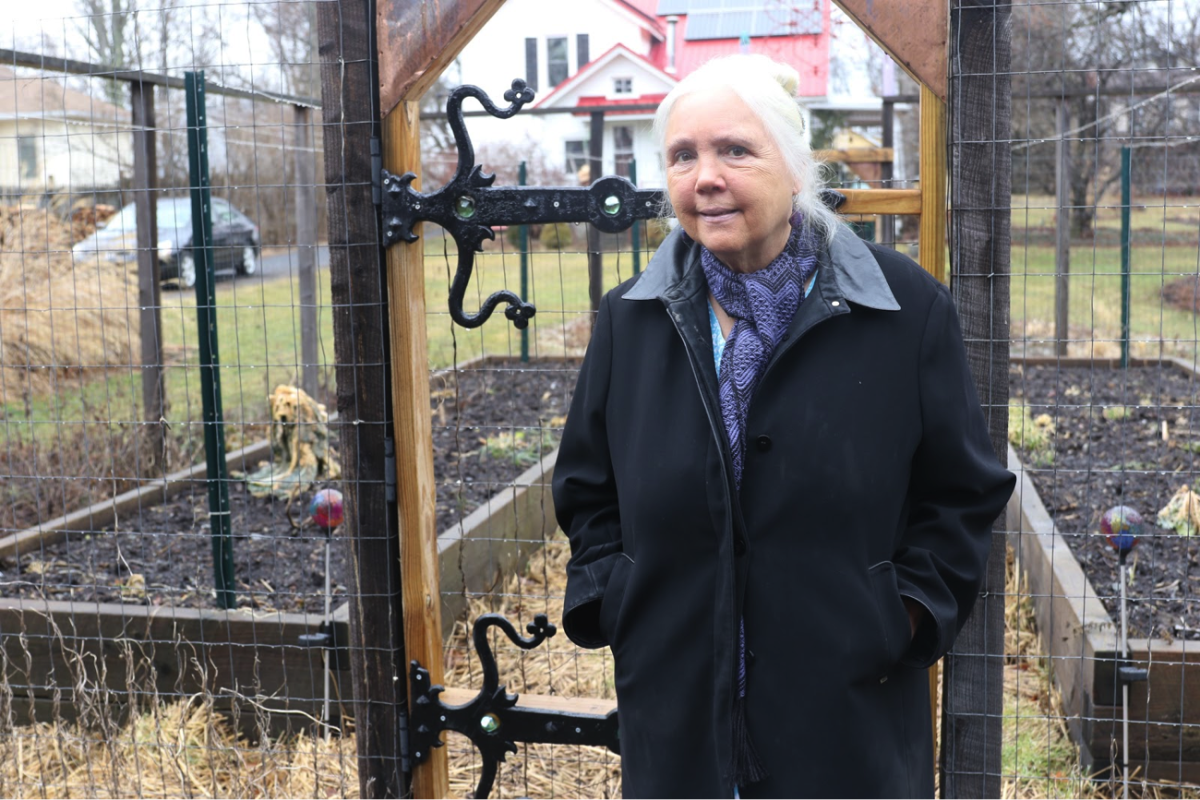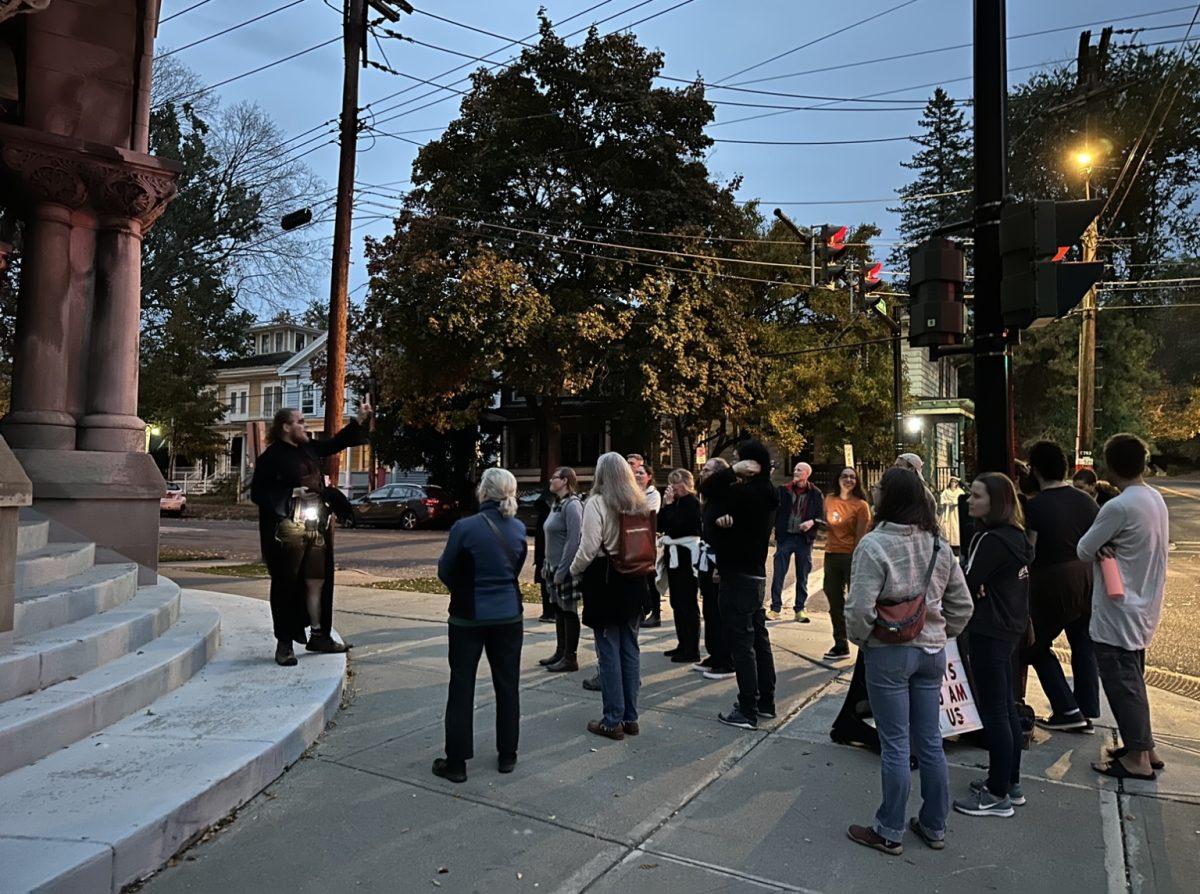First-grade students at Beverly J. Martin School in Ithaca had a lesson in handwashing Feb. 23 — just the beginning of the Food is Elementary program that Antonia Demas is bringing to Beverly J. Martin School through her nonprofit, the Food Studies Institute.
Demas founded the Food Studies Institute as an official nonprofit organization in 1999 to promote nutrition and health without having to go through layers of government bureaucracy. Her curriculum, which emphasizes sensory-based learning and the integration of subjects like history and social science, is now in more than 3,000 schools both in the United States and abroad.
Proper food safety is just the start of Demas’ program that ranges from hand-washing to a community dinner. Her curriculum is the result of years of developing lesson plans around foods that kids would not normally eat. She has found that kids will enthusiastically eat foods that they have a hand in preparing.
“I knew I was on to something important in terms of getting kids to accept health-promoting foods in their diet,” she said. “The kids are the easy part — the kids get it. If you don’t judge them, and you don’t blame or shame them into eating it, you just make it super fun, the kids will eat things.”
First-grade teacher Ryan Barker said his own kids went through Demas’ program at Cayuga Heights Elementary, and they loved it. He said the program was also appealing because it fit in with his goals for the year.
“The other first grade teacher and I have a ‘farm to table’ theme for the year, and so it fit in perfectly with what we were doing,” he said. “We went and met with Antonia and decided to include it in our curriculum.”
The Food Studies Institute is funding the program at BJM through grants from GreenStar and the Park Foundation — a model that Demas uses to fund programs in other schools as well, using various local organizations.
Despite garnering national press and multiple success stories, finding this kind of funding has been more of a problem in recent years, Demas said. Her friend and fellow board member, Barbara Orlando, has been with her from the beginning and has trouble explaining why this is the case.
“She does get funded, just not in a big enough way that she can hire a business manager and spend time traveling around the country spreading her program,” Orlando said. “A big breakthrough would be a significant amount of money from a foundation or an individual who cared about this issue.”
To accommodate this, Demas has set a limit for herself of three years of providing funding for a particular school, at which point she wants the school to take over with funding.
“Funding is always an issue here,” Barker said about Beverly J Martin. “It’s always a fight. So far the school has been really supportive of these kind of programs. I know the principal is 100 percent behind this. If she’s supporting us that’s the first big hurdle that we’ve overcome.”
She designs her program to involve as few costs as possible by using foods already on the USDA commodity list. Regardless, she believes her program is cost effective in nature.
“If the kids are healthier, there’s going to be less absenteeism,” she said. “Every time a kid is absent from school, it may cost a hundred dollars a day for that one kid, in terms of state aid.”
Demas has shifted her emphasis from the national level to the local level. Her goal for the next few years is for Finger Lakes school districts to have their own food literacy educators, but first, she needs to convince administrators that her program works.
“The education is crucial to acceptance of new food, but the education is messy,” Demas said. “You bring food into the classroom, and you let the kids experiment, and you can’t always guarantee what the result will be. The thing that I’m trying to get across to educators is that education is the solution.”







